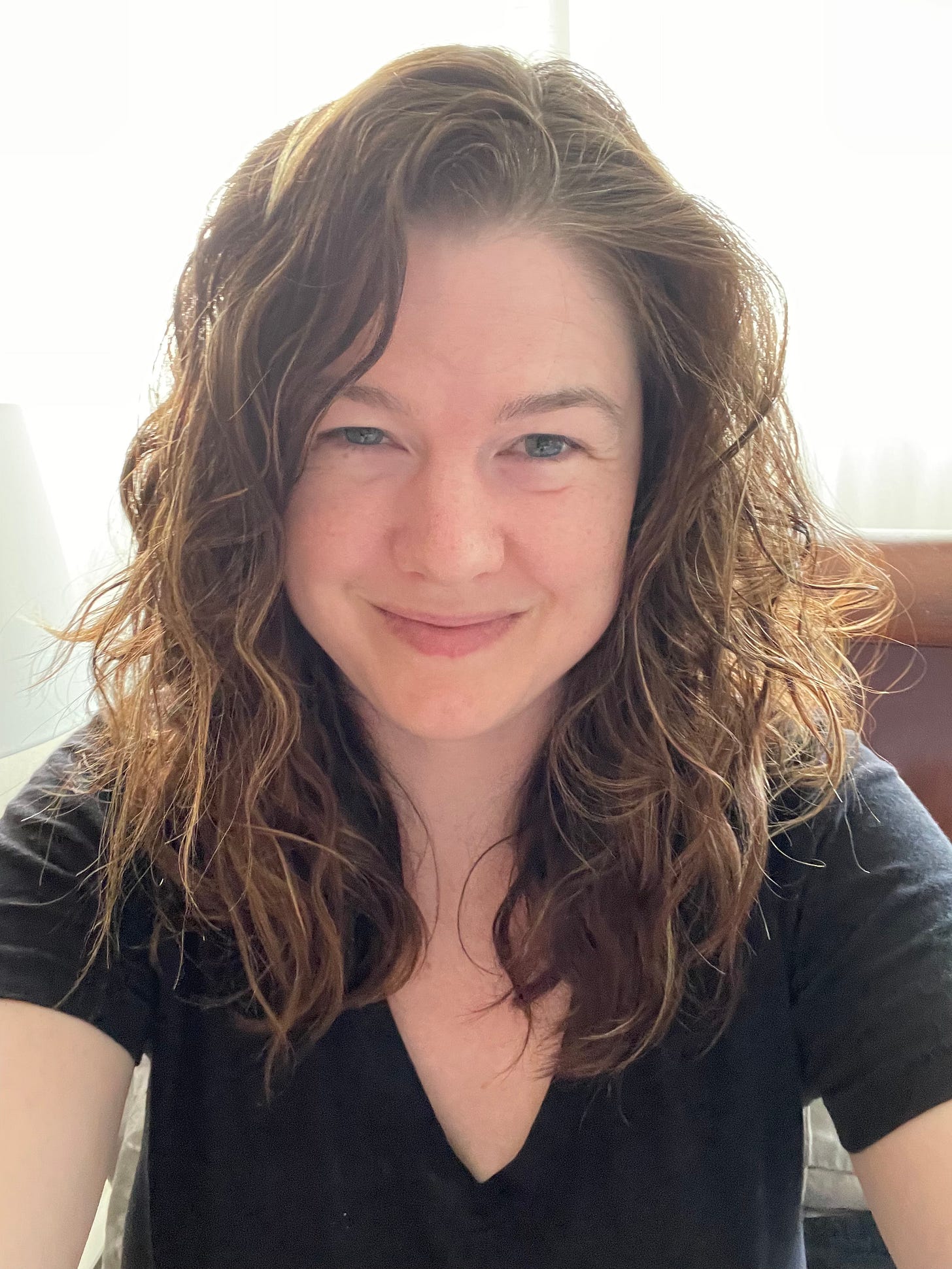This week at the White House Correspondent’s Dinner, comedian Roy Wood, Jr., had an important message poking out of his hilarious set: Local sources of news are dying and, without them, we are missing community storytellers and watchdogs all over the country.
As a former community journalist, I am painfully aware of this reality and of how deeply important local news sources are. When I started Medical Motherhood, I imagined it could be like a small newspaper for my community. Even if you and I aren’t connected by geography, we are connected by common experiences and that makes us a community with a need for vital information and common stories.
As I have approached the end of Year Two of this endeavor, I’ve taken stock of what I set out to do and what we have accomplished together. Readers, you have proven that a news source like this is necessary. Together we have grappled with difficult personal experiences and we have pushed for radical policy change. You have made “medical mama” and “medical motherhood” terms that I now see all over the interwebs. You have solidified and validated my experience, and I hope that I have given you the same gift.
My original concept was that Medical Motherhood would itself sustain me as a writer and reporter: A little one-woman newspaper that worked just for her readers. That dream hasn’t penciled out yet, but fortunately I have discovered that mainstream publications are interested in stories that are important to this community. And that takes time I can’t devote to providing you all with original and unique content for free each week.
So I guess in all these musings about reporting, I’ve buried the lede. Here it is: Medical Motherhood will now be a collection of news briefs with occasional cross-posted content from my freelance work. I hope you continue to return each week for the collection of news from around the world that focuses on new policies, studies and other news relevant to those raising disabled kids.
In my freelance work, which will be posted here too, I will also continue to report on stories I think need to be told, especially those that are unique to this community and not being reported on otherwise. With the advantage of this extra time, those stories will be deeper and (hopefully) more impactful.
It’s probably no coincidence that I launched Medical Motherhood a couple months after our family qualified for Oregon’s temporary paid parent caregiver program. It is probably also no coincidence that I am feeling more pinched for time now that that program is ending May 11. For those who qualified for the temporary program, being paid for our caregiving labor the last couple of years allowed us to give back to our community in ways that will be a lot more difficult when that option goes away.
I’m still here for you, readers. Though our children’s diagnoses may be different, we remain bonded together in our common struggles with the very systems designed to help them. I also see paid parent caregiver programs becoming more popular across the nation and being on the cutting edge of that conversation has been very exciting. With your support, shares and subscriptions, we have changed the conversation on a number of topics.
This always was and always will be a labor of love. Every newsletter and every podcast episode is a wish on the wind that this information it finds its people and is helpful to my community.
I hope this new format continues to find you and that the coming episodes remain helpful.
Thank you for your continued support and for being a part of Medical Motherhood.
Medical Motherhood’s news round up
Snippets of news and opinion from outlets around the world. Click the links for the full story.
• From the Seattle Times: “WA lawmakers increase special education funding, but gap still remains”
As state lawmakers went dark for budget negotiations last month, there was hope they’d emerge with a solution to fully fund special education.
But the new state budget signals they’re still not done talking about it.
Programs for disabled kids in Washington schools got a $365 million boost over the next two years, bringing the total budget for special education up to $4.1 billion. It’s a significant increase — 9% — in a session where concerns over an economic downturn shaded many decisions, but the extra funds meet only half of the gap outlined by state education officials.
Lawmakers also kept in place a major driver of that funding gap — a policy that caps funding to school districts if they enroll more than a certain percentage of disabled children.
Among disability rights advocates, one of the most-watched K-12 proposals this session called for removing this cap entirely. Instead, lawmakers increased the percentage from 13.5% to 15%. Advocates warn that this cap opens the state to litigation: The state has a constitutional promise to cover basic education costs for all students. About 95 school districts are above the cap, including the Olympia and Spokane school districts.
[…]One big change did come out of the session: lawmakers expanded the state’s oversight over nonpublic agencies, which are private schools that enroll students with complex disabilities. The Seattle Times and ProPublica surfaced complaints of abuse toward students at these schools last year that went unaddressed by state officials.
The state will also commission an audit of the process used to determine whether students qualify for special education services. […]
• From Disability Scoop: “Feds Want To Shake Up Rules For Home And Community-Based Services”
Federal Medicaid officials are proposing major changes aimed at improving access to home and community-based services for people with disabilities and bolstering the direct support professional workforce.
The Centers for Medicare & Medicaid Services issued two proposed rules in the Federal Register this week that the agency said would “establish historic national standards for access to care regardless of whether that care is provided through managed care plans or directly by states through fee-for-service.”
The effort includes key changes to the rules governing home and community-based services through what’s being called the Ensuring Access to Medicaid Services regulation, or the Access Rule.
Under the proposal, states would be required to reassess the needs of each individual receiving home and community-based services annually and revise service plans accordingly. In addition, the rule would require that at least 80% of what Medicaid pays for personal care, homemaker and home health aide services goes directly toward compensation for the person providing the service rather than for administrative purposes or profit. And, states would need to publish the average hourly rate paid to direct care workers.
The 130-page regulation also includes new mandates for states to report on how long their waiting lists are, whether people can access services once they get a waiver and various quality measures in their home and community-based services programs. […]
• From iNews (opinion): “Child trust funds: Disabled teenagers want their cash but a government empathy gap stands in the way”
(United Kingdom): If your child was born between 2002 and 2011, the Government gave you a cheque – £250 or more – which you put in a Child Trust Fund account to save until they reached 18. In the months before the big day, you receive a letter from your Child Trust Fund provider: could it have your teenager’s bank details so the money can be transferred?
Except, if your child is learning disabled, this may not be possible. If your child lacks the mental capacity to manage their finances they can’t open an account, so their money is stuck – unable to be paid out because there is nowhere to put it. Why it can’t be sent to a parent’s bank account is because of the Mental Capacity Act, which came into force in 2005.
Introduced to protect the finances and decisions of vulnerable people, it means that if you wish to access the money found in a savings product the Government forced you to take out for your child, you must go to court.
This is a costly and laborious process [… that the Government considers reasonable…] even though you are not a family with ordinary, run-of-the mill stresses. One woman we interviewed in this position, Elizabeth Stanley, explains she doesn’t have the bandwidth to go to court because she spends 93 hours a week caring for her daughter, who uses a wheelchair and has regular seizures.
[…]Let’s hope [the new Ministry of Justice chief] reconsiders and addresses this glaring empathy gap. If he spent time with these teenagers and their parents, he would surely conclude that obliging them to go to court, or putting them at risk of losing their savings, cannot be the answer.
Medical Motherhood brings you quality news and information each Sunday for raising disabled and neurodivergent children. Get it delivered to your inbox each week or give a gift subscription. Subscriptions are free, with optional tiers of support. Thank you to our paid subscribers!
Follow Medical Motherhood on Facebook, Twitter, TikTok, Instagram or Pinterest. The podcast is also available in your feeds on Spotify and Apple Podcasts. Visit the Medical Motherhood merchandise store.
Do you have a story to share or an injustice that needs investigation? Tell me about it and it may become a future issue.













